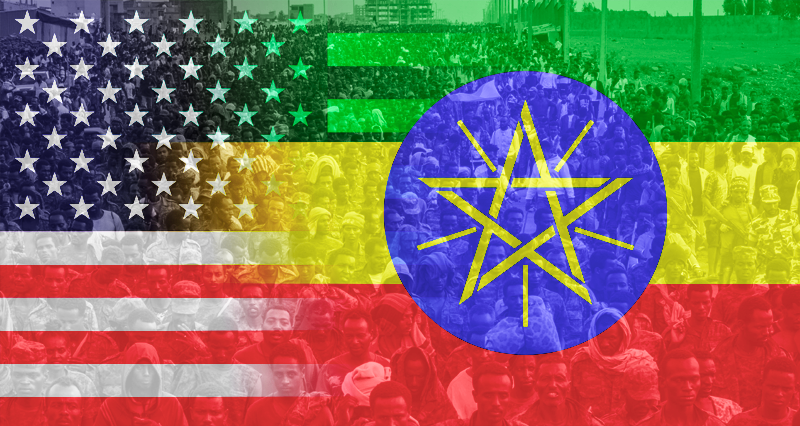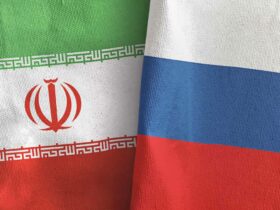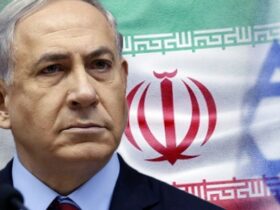By Awad Abdulsebur Ahmad / Addis Abeba
Despite the unilateral humanitarian ceasefire declared by the government of Ethiopia in an effort to assist the smooth flow of humanitarian aid to the people in Tigray region, the conflict has continued, resulting in a devastating humanitarian crisis. The Tigray People’s Liberation Front (TPLF), a militant group that is waging war with the federal and regional forces of the country, has publicly rejected the ceasefire and is expanding its military movement to the adjacent Amhara and Afar regional states of Ethiopia. The number of people killed and displaced in the regions has been increasing at an alarming rate. According to government sources, more than half a million people have so far been displaced in Amhara and Afar regions alone. More than 4.5 million residents of the two regions are also experiencing social and economic problems due to TPLF’s attacks.
Several international humanitarian organizations have been expressing their concern over the humanitarian catastrophe looming in the region particularly on the more than 4 million people in Tigray region due to the aggravated conflict. Aid agencies are repeatedly demanding for unhindered access to reach the people in Tigray whose lives are in critical condition due to lack of food in Tigray.
The origin of the conflict
Prime Minister Abiy Ahmed, who came to office following the popular protests that shook Ethiopia in 2018, established a new kind of political environment in the country. The changes resulted in the collapse of the former coalition, the Ethiopian People’s Revolutionary Democratic Front (EPRDF) that ruled the country for more than 27 years. The political reforms undertaken under Abiy’s leadership introduced the Prosperity Party by replacing the former ruling EPRDF that was largely dominated by TPLF. The TPLF rejected the new party and became an opposition group.
The top leaders of TPLF have detached themselves and confined themselves in the Tigray region and publicly declared that they would not recognize the federal government as legitimate. The media war front escalated for months, one accusing the other regarding the several conflicts that occurred across the country. The federal government accuses TPLF leaders of sponsoring the conflicts, killings and displacement that have happened over the past three years in order to delegitimize the federal government and disrupt the political and economic reforms being undertaken in the country.
Finally, the special forces of the Tigray region led by the region’s ruling TPLF attacked the Northern Command of the Ethiopian National Defense Force stationed there. Then, the federal government declared war against the group in Tigray in an attempt to stabilize the region to safeguard the constitutional order. In the two weeks of offensive attack conducted against the TPLF in Tigray, the federal government was able to take control of the entire area. The federal government also established an interim regional administration in the region. However, key political and military leaders of TPLF have not given up and continued their insurgency via guerrilla warfare. As a result of these insurgencies, the interim administration was not able to smoothly operate and properly provide humanitarian aid and other basic services to the people in Tigray. The federal government eventually declared a humanitarian ceasefire on the 28th of June in order to facilitate the smooth transmission of humanitarian aid in the region and facilitate for farmers to make productive use of the rainy season. It’s been nine months since the armed conflict erupted in the northern part of Ethiopia, and the humanitarian situation continues to worsen as the TPLF has rejected the ceasefire.
Humanitarian crisis & the continued lament of the West
The humanitarian crisis in the region is on an immense scale. According to international aid agencies, some 100 trucks of food supplies need to be sent to Tigray every day in order to adequately address humanitarian needs. However, until recently, they have only been able to attain 7% of that target. According to the UN humanitarian agency, food stocks have been depleted since August 20 in the region. USAID Chief Samantha Power recently warned that aid organizations are running out of food and about to stop distribution. Given that TPLF forces have continued their invasions into neighboring Amhara and Afar regions, the situation is still unpredictable.
However, some major international humanitarian organizations including USAID are blaming the government. USAID chief Samantha Power blamed the Ethiopian Government for “obstructing humanitarian aid, including land convoys and air access.”
Western governments like the US have strongly accused Ethiopia despite its efforts to address the challenges. In the recent UNSC meeting the US Deputy Representative said “… the Ethiopian government is intentionally withholding humanitarian assistance to starving Ethiopians, and these impediments to the movement of humanitarian supplies must be removed immediately, and trucks must be allowed to enter and deliver lifesaving assistance to Tigray.”
However, the federal government of Ethiopia has been dismissing such accusations. It argues that it is very much concerned for the people of Tigray. The government claims that they have fulfilled the responsibilities normally expected from them, including the dispersal of humanitarian aid following the ceasefire. Officials reiterated that all the necessary routes through the Amhara and Afar regions including air transportation from Addis to regional capital Mekele have been devoted to humanitarian activities in order to reach the people. However, some members of the international community are not happy with the government rejecting the use of air transport direct to Tigray. The government is also stressing the need to undertake the necessary checks at each and every level without creating further predicaments.
However, the government is equally worried about the national security of the country, and states that this is a non-negotiable front. According to officials, the region is currently quite fragile in terms of security, and urge caution to ensure that the necessary measures are taken in order to avoid any national security risks. In addition to that, opening a new corridor via the Sudan border is impossible as it is very dangerous for the sovereignty of Ethiopia bearing in mind the existing border dispute between Ethiopia and Sudan. The government of Ethiopia has also been trying to convince the international community that allowing direct flights to Tigray is not appropriate since there are other ample alternatives to transport the food supply to the people there.
Where is the bottleneck?
The government has stated that there are enough routes made available to access the people in Tigray, the major ones being the adjacent regions of Amhara and Afar. It has also given full permission to use air transport from Addis Ababa to Tigray. However, most of the adjacent areas are not currently safe due to the continued conflict. The government accuses TPLF of increasing its military movements in the neighboring regions including blocking humanitarian aid to critical areas. This has also been confirmed by international aid organizations including USAID. The TPLF has not only been obstructing humanitarian aid to Tigray but also exacerbating the crisis by increasing the number of people affected by the conflict. As stated by several humanitarian actors in Ethiopia, more than 4.5 million people have so far been affected in Amhara and Afar regions alone.
Observers have not only accused TPLF, but also the international community for the aggravated humanitarian crisis. Major actors like the US government including USAID as well as United Nations humanitarian agencies and others have ignored this reality and continued accusing the government. Many Ethiopians are confused by the indifference and one-sided stance among the international community by undermining the government’s effort to address the problem in Tigray. Prominent scholars, politicians and several other segments of Ethiopians have been critical of the international community’s inauspicious reaction.
The international community has done too little to pressure the TPLF to halt its destructive acts. Had the international community, particularly the US government and its Western allies, genuinely tried to settle the situation in a balanced manner, the existing looming humanitarian crisis could have been prevented from the outset.
Some political analysts believe that the US and its allies in the West are supporting the TPLF in the diplomatic arena for self-serving reasons.
As repeatedly stated by the leaders of TPLF group, the military movement is expanding into adjacent regions to weaken the federal government by blocking Ethiopia’s lifeline, the Ethio-Djibouti road which is the nation’s major transportation route for the more than 95% of export and import goods of the country.
Several Ethiopian groups and other outside observers believe that the western nations including the US are well aware of TPLF’s encroachment into these neighboring regions, and that this is a deliberate attack on the country’s social and economic infrastructures as well as obstruction of humanitarian aid to Tigray. The US hopes to prolong the conflict by providing support to the TPLF so as to weaken the federal government and force it to accept preconditions for negotiation with intensified pressure. However, the federal government and other regional states refuse to submit to this pressure, instead vowing to destroy the TPLF group so as to ensure Ethiopia’s unity and national integrity.
Western powers meddling in Africa
The Horn of Africa, situated in the eastern part of the continent, is a geopolitically strategic location. The region comprising the Red Sea, which is also one of the world’s busiest shipping lanes, connects Africa with the continents of Asia and Europe. Being the main source of the Nile River, situated across the Red Sea, and Gulf of Aden makes the Horn Africa internationally significant, in addition to its proximity to the Arabian Peninsula which is rich in oil. The region is also critically important for it is one of the major routes to transporting oil from the Gulf.
In addition to that, the Horn of Africa is endowed with numerous natural resources including minerals and oil as well as plenty of arable land conducive for massive mechanized farming activities. However, the leaders of countries in the region have not been able to tap these political and economic advantages to the benefit of their people. One of the reasons is the persistent conflicts and political instability that the region has been experiencing for decades coupled with the interference of foreign powers with hidden self-interest.
Many world powers have now been showing a huge interest in the Horn of Africa. Currently, a competition is ongoing among world powers over the region, as a result of which they have begun meddling in the internal affairs of countries to exert their influence. The conflict in Somalia, South Sudan and Sudan has not been improving and millions of innocent civilians in these countries are still suffering, predominantly as a result of foreign interference. However, some powers of the region have been attempting to find ways to settle their security and development challenges.
Ethiopia is critically important to the peace and development of the region, and Prime Minster Abiy has been pushing integration in a bid to ensure peace and prosperity.
Abiy’s plan for integration vs Western interest
One of the things that the new Prime Minister did during the first months in office was signing a peace deal with the government of Eritrea, something which astonished the international community. Abiy swiftly rebuilt the bridge that was destroyed leaving the people of the two nations separated for more than two decades. Almost everyone in the international community including the US and its key allies in the West acclaimed the decision made during that time. Following a peace deal with President Issayas, Abiy traveled to neighboring countries including Egypt to advocate for peace, shared development and regional economic and political integration.
Abiy made another decisive move that could lead to political change throughout the Horn of Africa, pushing for regional cooperation with Eritrea and Somalia. Hence, the leaders of Ethiopia, Eritrea and Somalia have agreed to establish a regional cooperation framework with a view to strengthening security and enhancing economic and social development. The three leaders announced a plan to establish a new regional coalition called the ‘Horn of Africa Cooperation’. The leaders aspire toward the creation of a new bloc, hoping that peace and development could be possible if the nations of the region act accordingly.
The political, economic and humanitarian crisis being observed in the region is not only the result of the internal political weaknesses of governments themselves: outside forces have been making the situation more complex by meddling in the internal affairs of countries in the Horn of Africa in pursuit of their own interests. Analysts think that some Western powers, including the US, don’t want strong states that are able to independently operate in the region. Instead they hope to manipulate the weaknesses of the governments in the region.
The previous government in Ethiopia was to the West’s advantage in this regard. Ethiopia had been key ally of the western powers particularly the US in terms of the fight against terrorism. In return, the West and US have been encouraging Ethiopia by providing financial, political and military support so as to increase its role in the region. Though Ethiopia has been the major player in regional peace and security issues, it was obvious that the government was working in accordance with the interest of the West.
The US and its allies are known for their collaborative political play, subtly breaching international laws and moral obligations. Human rights and democracy are the usual cards they play in order to accuse and weaken other nations. The weapons they use range from political and economic sanctions to military assaults to force governments of sovereign countries to bow down for their demands against the interests of their citizens.
Naturally, these powers opposed the establishment of a new bloc in the Horn of Africa, especially given that the bloc included Eritrea, which is well known for political independence and strong resistance to Western sanctions. In this regard, the previous government in Ethiopia that was dominated by the elites from TPLF had played a key role in the attempt to weaken Eritrea. Over the past two decades, the US was working with the then Ethiopian government to weaken the government of Eritrea and bring a regime change by any means. However, after several years of isolation by the international community, Eritrea has now entered a new era of change, as the countries have agreed to find common ground.
According to analysts, the new alliance to be established by Ethiopia, Eritrea and Somalia has been considered by some westerns as a threat for their interest in the region. The current situation in Ethiopia and the stances being observed by some of the west and the US emanates on from here. These parts of the international community have been working to pressure Ethiopia without any consideration of the ongoing humanitarian catastrophe caused by TPLF forces in the Tigray region.
The US is now engaged in soliciting partners in the west and vital international organizations notably international financial institutions to intensify economic sanctions so as to deny Ethiopia financial support. Top Ethiopian political leaders have repeatedly voiced the fact that the US and its partners have been working with the group to dismantle the government system in Ethiopia, weaken the country and bring regime change that is suitable for their interest.
Consequences of the US’ stance
The US government has been engaged in tarnishing the image of Ethiopia since the conflict erupted in the Northern part of the country. All of the statements being issued over the past ten months were not only balanced but also clearly indicate the fact that they have been deliberately trying to hide the provocative acts orchestrated by TPLF. This also has been publicly demonstrated in the United Nations Security Council (UNSC) meeting held last August.
During the meeting, US Deputy Representative to the United Nations Richard Mills accused the government of Ethiopia of being responsible for the ongoing humanitarian aid blockade while TPLF is engaged in expanding the conflict to other parts of the region by rejecting the humanitarian ceasefire declared by the government. Several humanitarian organizations blame the group for blocking trucks loaded with humanitarian food aid to the people in Tigray. “Millions are at high risk of food insecurity in northern Ethiopia, and of those, hundreds of thousands are estimated to be at risk of starvation in Tigray,” he lamented, presuming the government’s guilt. The US administration has also issued several statements that clearly violate the international principles and norms of non-interference in the affairs of other member states.
However, other members of the council such as China, Russia and India have expressed their confidence that Ethiopia is capable of resolving its political crisis on its own. They urged the international community to respect the sovereignty of the country and support its efforts to bring sustainable peace. They have also expressed their concern that unilateral sanctions would not bring solution instead exacerbate the conflict. The Deputy Permanent Representative of Russia at UNSC, Anna Evstigneeva, expressed her regret by the failure of the unilateral humanitarian ceasefire declared by the government of Ethiopia at the end of June. It is obvious that the ceasefire failed due to the belligerent acts of the TPLF.
“We are particularly concerned by the attempts of TPLF to curb humanitarian delivery routes, in particular to impose control over the strategic route linking Ethiopia and Djibouti, which threatens to further exacerbate the already complex humanitarian situation and boost the flow of refugees and IDPs,” the Ambassador pointed out.
The Permanent Representative of China to the United Nations, Ambassador Dai Bing, said China opposes interference by external forces in Ethiopia’s internal affairs in the name of human rights and humanitarian matters.
Despite the TPLF systematic brutal human rights violations over their 27 years in power, the US administration never dared to publicly condemn the former government. This implies that the US and its partners in the West hope to use the TPLF to regain political power in Ethiopia by making the necessary investments to weaken the current government. The US and its associates don’t want the conflict to end unless the government of Ethiopia bows down and accepts negotiation with TPLF and establishes a transitional government.
If the US and its associates in the West continue their meddling in the internal affairs of Ethiopia, including continuing to support the TPLF and intensify their political and economic pressure on the government to prolong the conflict, the possibility of a much more severe humanitarian crisis throughout the entire region is huge. Considering Ethiopia’s role in peace building efforts in the region and the situation in Somalia, Sudan and South Sudan, it would not be difficult to imagine how the security challenges of the region could be threatened if instability in Ethiopia continues.
Emerging public hostility
Ethiopians have been providing support to Abiy’s administration in its law enforcement operation in Tigray. Ethiopians across the nation and the diaspora community at large have also condemned the TPLF for its warmongering acts by rejecting the call for peace. The members of the international community that support the TPLF are also receiving strong condemnation by the Ethiopians. The support being provided to the government ranges from staging a number of demonstrations and financial assistance to joining the Ethiopian National Defense Force to enhance the fight against TPLF.
Furthermore, Abiy’s enormous public support has also been demonstrated during the six general elections held in June 2021. The ruling Prosperity Party won a landslide victory in the election that has registered high voter turnout. The election results were also recognized by international organizations as peaceful, fair and transparent. However, the government in the US and some other countries in the EU have been trying to undermine the election that attracted close to 40 million voters.
The international community’s deliberate silence about the reality on the ground in Tigray, turning a blind eye to the TPLF’s destructive activities, and undermining the relentless efforts being done by the government of Ethiopia to facilitate humanitarian support to the people in Tigray have led the general public in Ethiopia to distrust certain members of the international community. Hostility in Ethiopian society has grown against the United States in particular. Prominent Ethiopian opposition political party leaders, scholars, and elites inside the country and abroad have been campaigning against the stance being promoted by this part of the international community.
Media sources in Ethiopia that had been critical of the government have also begun to condemn Western powers for trying to meddle in the internal affairs of the country. All segments of the population in Ethiopia have been expressing their disappointment regarding the Western media’s unfair and partial reporting about the situation. The Western media has also been criticized for misrepresenting the TPLF and its atrocities, including the recruitment and deployment of child soldiers, despite ample evidence.

















Leave a Reply